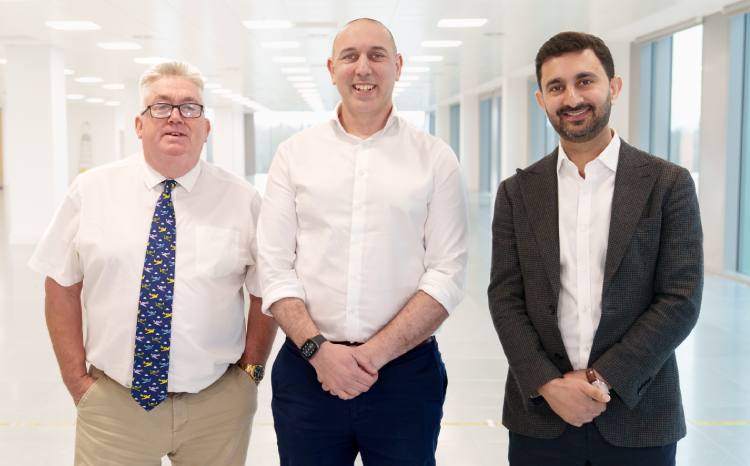Why you should find the time to mentor aspiring digital leaders
- 18 September 2024

Informal mentoring from digital leaders helped land physiotherapist Ben Jeeves his first job in digital. Now he is mentoring the next generation – and getting a huge amount back
Five years ago, I knew digital was where I wanted to be. I had been fortunate to gain some non-clinical, digital experience which paved the way, but how would I make the step into a digital role? It seemed like an unmanageable chasm. Mentoring and coaching was how, but I didn’t know that at the time. So I turned to social media, found some ‘people’ in digital, and connected with connections of colleagues. I said hello and asked for help.
Those conversations were directly linked to me securing my first ‘proper’ digital job. What I learnt from this was how willing to help people were, giving their time to someone who had nothing to give in return (at the time anyway). I hope I have given something back by now in terms of paying it forward, and this will only continue.
Whether the individuals who helped me were thinking ‘pay it forward’ or not, that is what they did. They set something in motion which continues. A concept that has never left me is ‘leave people better than you found them’ (Marvin J Ashton). Leadership is about trying to make others better than you. We should always want to help elevate people and create the right culture – because tech without people goes nowhere.
The Digital Health Networks mentoring programme provides a different, more structured, context for mentoring. I was lucky enough to secure a place on the scheme, and it really helped to have a space outside of my role. It gave me a fresh view of my current challenges. It was a safe place. It was also a place of experience, made better by it being a group set up, further enriching the expertise available.
Benefits for all
One of the main benefits of being a mentor is the dedicated opportunity it provides to pay it forward. As a mentor, you have a platform. It’s important to use it wisely and make the most of it.
The dialogue you have as a mentor with mentees, brings significant benefits. You are exposed to new questions, new critique, fresh ideas. There is an opportunity to reflect too, which aids your own development. Mentoring has benefits for both mentors and mentees, which in turn has a positive impact on their organisations.
Time constraints
There are challenges, of course. The current pressures escape no one. Time is a precious gift, and there are dozens of competing tasks and priorities. Everyone’s time is constrained. So how do both mentors and mentees manage to participate in these programmes? Well, that largely comes down to culture. As a mentor you need the support of your manager and wider department to deliver and impart your knowledge and experiences, just as a mentee needs the support of their manager to have the time to participate in the programme. It’s an investment. A down payment. Without investing in people, we are selling ourselves short.
Minding the gap
There are huge expectations on tech to resolve the NHS’s current challenges, but tech can’t do it on its own. Digital is the enabler. But it is future digital leaders who will enable the tech.
There is still no clear path to move from clinical to digital. But a reliable mentoring programme will certainly help to address part of the gap, and support people to navigate that transition.
It can be incredibly daunting moving from a clinical role into a digital role. Some roles can be quite isolated. The newly formed Digital Health Networks Clinical Safety Officer Council is hearing that people in CSO roles can feel particularly isolated. We are responding to this need by taking the opportunity to have a dedicated CSO mentoring programme, which I believe is the first of its type.
I hope it will be a beneficial platform for CSOs up and down the country to connect with fellow CSOs in a way not previously available. Who knows what will come from that. Let’s watch this space.





